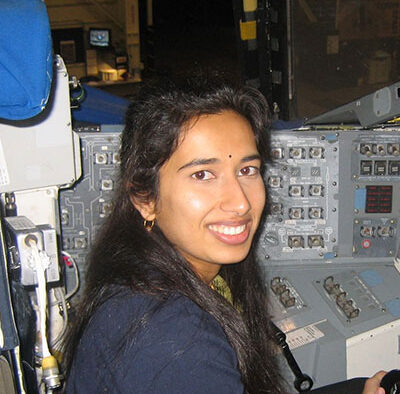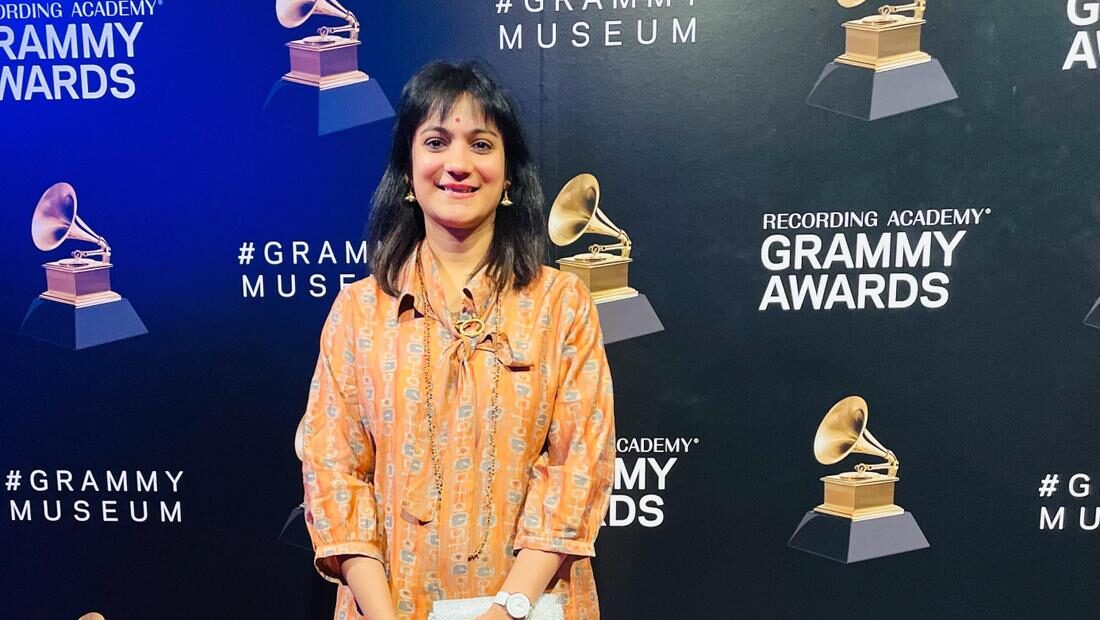The Guidance, Navigation and Controls operation lead of NASA’s Mars 2020 mission, Swati Mohan, is one of the dedicated and skilled members of the team responsible for making this endeavor a success. The GN&C subsystem, involved with proper spatial orientation of the spacecraft and maneuvering and judging the position of the spacecraft during entry, descent and landing. A truly phenomenal woman, passionate about science and space from childhood, Swati has been working on the Mars 2020 project almost since its conception in 2013.
She says she led the attitude control system of Mars 2020 and was the lead systems engineer throughout its development. The attitude control system points the vehicle where it needs to be and helps figure out where the spacecraft is oriented in space. "The GN&C subsystem is "eyes and ears" of the spacecraft. During the cruise phase heading toward Mars, our job is to figure out how we are oriented, make sure the spacecraft is pointed correctly in space (solar arrays to sun, antenna to Earth), and maneuver the spacecraft to get it where we want to go. During entry, descent, and landing on Mars, GN&C determines the position of the spacecraft and commands the maneuvers it to help it land safely. As operations lead, I am the primary point of communication between the GN&C subsystem and the rest of the project. I am responsible for the training of the GN&C team, scheduling the mission control staffing for GN&C, as well as the policies/procedures the GN&C uses in the mission control room," she writes in her blog.
Perseverance: Behind the Spacecraft – Perseverance – The Next Mars Rover - YouTube
Swati emigrated from India to the United States when she was a one-year-old. Watching Star Trek as a child made her curious about the wonders of outer space and discovering new places in our universe. "and seeing the beautiful depictions of the new regions of the universe that they were exploring. I remember thinking "I want to do that. I want to find new and beautiful places in the universe." The vastness of space holds so much knowledge that we have only begun to learn."
She did not want to be a space scientist until after elementary school. "Actually, I wanted to be a pediatrician until I was about 16 years old. I was always interested in space, but I didn't really know about opportunities to turn that interest into a job. When I was 16, I took my first physics class. I was lucky enough to have a great teacher, and everything was so understandable and easy. That was when I really considered engineering, as a way to pursue space." After she took that Physics class, the possibility of exploring outer space through the facet of engineering was opened up to her, and she has proved exemplary at her job, having also worked on the Cassini and GRAIL projects before the Mars 2020 mission.
Swati finds her job incredibly rewarding and motivating, and is an inspiration for all young people in India and abroad who wish to pursue the field of science and push forward the frontiers of human knowledge and exploration. Asked what was her most rewarding experience working for NASA, she says, "It is an honor and privilege to work at JPL. Every day, there are so many exciting things happening that I am always in constant awe of what we get to do, and see, and learn, and the wonderful, incredibly talented people who make it possible. All the projects at JPL seek to expand human understanding, and are almost always first of a kind in some way. It's incredibly motivating to work in such an environment."
Indian and Indian-origin women have accomplished great things in the field of space, from the moving story of Kalpana Chawla’s journey with space exploration and the honour she brought to India as well as the world with her work, to Sunita Williams whose astonishing dedication, skill and work in the field has inspired many. Anuradha TK, a Geosat Programme Director at Indian Space Research Organisation (ISRO) Satellite Centre, is a model was young girls and women everywhere, and she strongly believes that women have an equal ability to excel at and contribute to the field. Ritu Karidhal, the Rocket Woman of India, is a scientist at ISRO famous for her contributions to Mangalyaan (India’s Mars orbiter mission) as Deputy Operations Director.
Scientists, researchers and astronauts such as these give hope to Indians and women everywhere that true passion for and dedication to the field of science will open doors and that the impact that can be made to the great journey of human exploration is tremendous.




